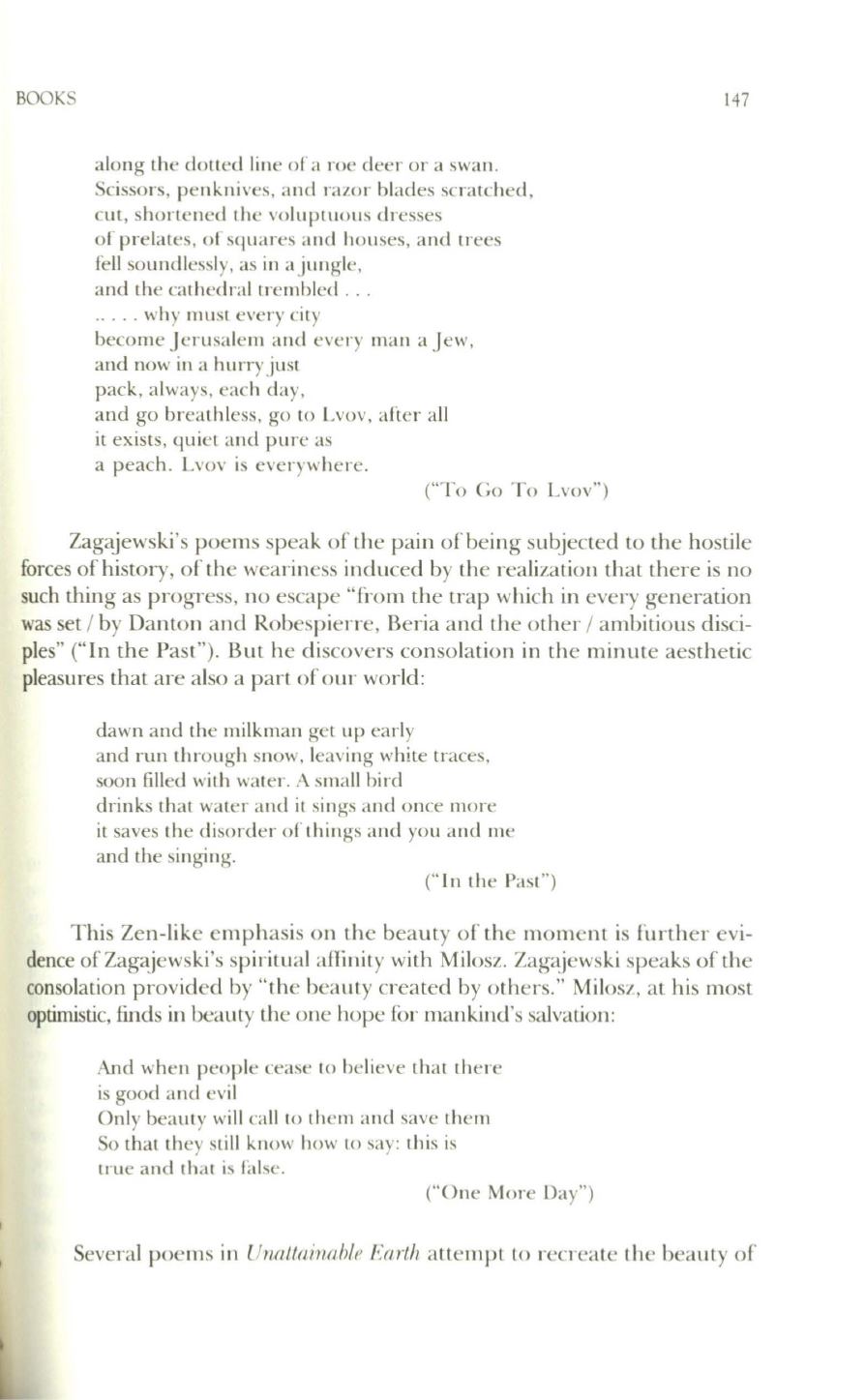
BOOKS
along the dotted line of a roe deer or a swan.
Scissors, penknives, and razOI- blades scratched,
cut, shonened the voluptuous dresses
of prelates, of squares and houses, and lI-ees
fell soundlessly, as in a jungle,
and the cathedral trembled ...
.. . . . why must evel-y city
become Jerusalem and every man a Jew,
and now in a hurry just
pack, always, each day,
and go breathless, go
to
Lvov, aftel- all
it exists, quiet and pure as
a peach. Lvov is everywhere.
("To Go To Lvov")
147
Zagajewski's poems speak of the pain of being subjected to the hostile
forces of history, of the weariness induced by the realization that there is no
such thing as progress, no escape "from the trap which in every generation
was set / by Danton and Robespierre , Beria and the other / ambitious disci–
ples" ("In the Past") . But he discovers consolation in the minute aesthetic
pleasures that are also a part of our world:
dawn and the milkman get up early
and run through snow, leaving white tnlces ,
soon filled with water.
t\
small bird
drinks that water and it sings and once more
it saves the disorder of things and you and me
and the singing.
(" In the Past")
This Zen-like emphasis on the beauty of the moment is further evi–
dence ofZagajewski's spiritual aflinity with Milosz. Zagajewski speaks of the
consolation provided by "the beauty created by others." Milosz, at his most
optimistic, finds in beauty the one hope for mankind's salvation:
And when people cease to believe that there
is good and evil
Only beauty will call
to
them and save them
So that they still know how to say: this is
tme and that is false .
("One More Day")
Several poems in
Una/lail1ah/rJEarth
attempt to recreate the beauty of


